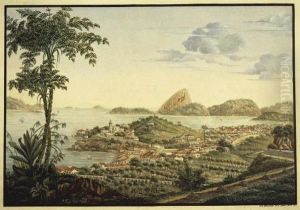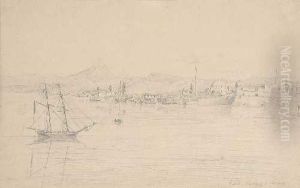Karl Graf Von Spreti Paintings
Karl Graf von Spreti was a notable figure in the 20th century, but not primarily for his contributions to art. Born on May 29, 1916, in Munich, Germany, into an aristocratic family, he was a German diplomat and politician rather than a professional artist. However, his affinity for art did play a significant role in his cultural and diplomatic engagements.
During his career, Graf von Spreti served in various diplomatic positions. After World War II, he entered the diplomatic service, and his postings included service in Spain, Guatemala, and Cuba. His last appointment was as the West German ambassador to Guatemala, a position he held from 1968 until his tragic death in 1970.
While his professional life was dedicated to diplomacy, Graf von Spreti was also known to have a deep appreciation for art. He was recognized for his personal collection and his patronage of the arts. His engagement with art and culture was characteristic of his broader understanding of diplomacy, where cultural exchange and mutual understanding were seen as essential elements.
Karl Graf von Spreti's life came to an abrupt end when he was kidnapped by left-wing guerillas in Guatemala City on March 31, 1970. His abduction was part of a series of events that reflected the political turmoil and violence in Guatemala during that period. Despite efforts to negotiate his release, he was killed by his captors, and his body was found on April 5, 1970. His death was a shock to the international community and highlighted the dangers faced by diplomats in politically unstable regions.
While Graf von Spreti's life was cut short, his legacy, albeit more in the realms of diplomacy and politics than in art history, has endured. His contributions to fostering international relations and his tragic end serve as reminders of the risks and responsibilities associated with diplomatic service. Although not an artist by profession, his patronage and appreciation for the arts are worth noting as a facet of his multifaceted personality.




